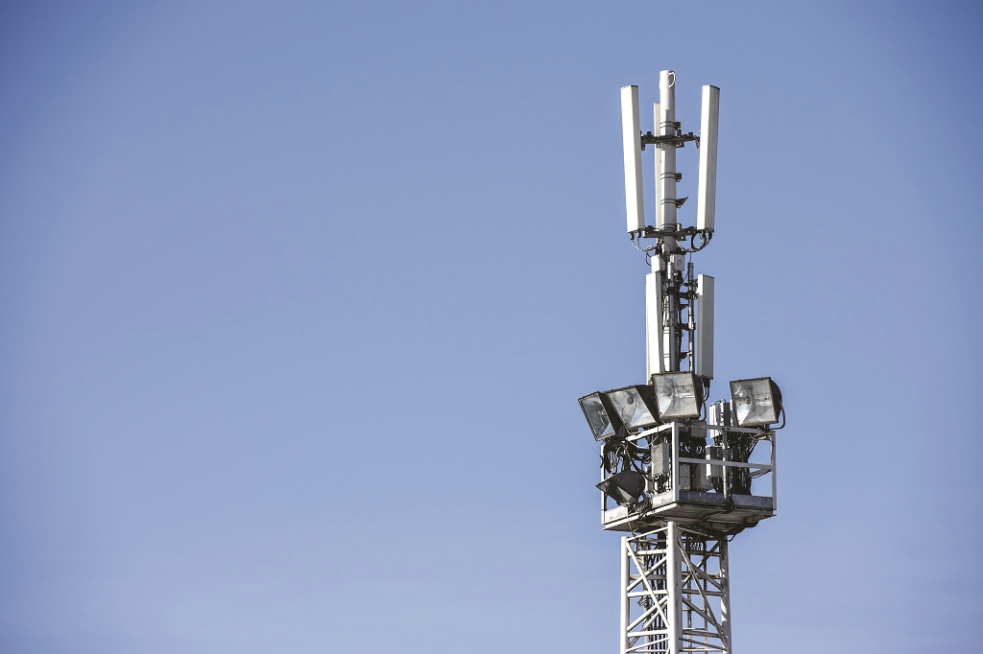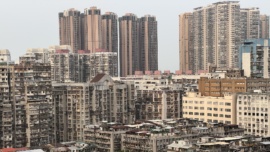The stalled progress in the issuance of 5G licences and new telecommunications bill is slowing down the city’s digital development
Since the commercial launch of 5G networks in 2019, the total number of 5G users in Mainland China has surpassed 400 million as of the first quarter of 2022, with a penetration rate of nearly 25 per cent. In Hong Kong, which officially entered the 5G era a year later, the penetration rate hit over 29 per cent as of end-2021, equivalent to over 2 million users.
In another Chinese SAR, Macau, the number of 5G users and the penetration rate, however, remains zero. Despite several pledges by the authorities, the launch of 5G service in the city is yet to materialise, a process that critics lament lacks planning, coordination and transparency.
The latest indication from the government about the progress of the local 5G development dates back to the comment by Secretary for Transport and Public Works Raimundo Arrais do Rosário. At a public event in May, the official noted he was “confident” the local 5G service could be launched this year, adding it was “a complex issue” though. On the same occasion, Post and Telecommunications Bureau (CTT) Director Derby Lau Wai Meng added on the same occasion that the authorities “will strive” to undertake the work of issuing 5G licences this year.
However, it will not be a surprise if the government has trouble, again, to deliver what it has promised. The administration had originally pinpointed the 5G service in the city could launch “as soon as 2020”,and later changed the target to come up with a proposal for the grant of 5G licences by the third quarter of 2021. Failing to meet the deadline, the government stated in the Policy Address for 2022 that the issuance of 5G licences would be completed by the first half of this year before Mr Rosário’s latest comment.
The two main reasons the government has madeto explain these multiple delays are: it takes time to draft the new Telecommunications Law that will pave the way for the issuance of the licences; and to identify the ownership of public telecommunications infrastructure and assets in the city, namely, whether they belong to the Macau SAR or Companhia de Telecomunicaçõesde Macau S.A.R.L. (CTM). The latter refers to the scenario that CTM had once been the sole integrated telecommunications provider in the city before the liberalisation of the mobile service segment in 2001 and the fixed-line segment in 2012respectively, and the company is now managing the public telecommunications assets under a public telecommunications service concession until end-2023.
“This reflects the lack of planning and transparency from the administration, which is detrimental to the public interests,” says legislator Lei Leong Wong
Third-party study

Legislator Lei Leong Wong blasts these delays in the issuance of 5G licences. “This reflects the lack of planning and transparency from the administration, which is detrimental to the public interest,” he says. “The lack of a concrete timeline for 5G will slow down the development of local telecommunications services.”
As the authorities have also commissioned a third-party institution to carry out study on the local telecommunications market, including the issuance of 5G licences, management of telecommunications infrastructure and assets, Mr Lei pinpoints the results of the research should be publicised as soon as possible with a clear timeframe on the matter.
The Nanjing University of Posts and Telecommunications was commissioned by the Macau government with MOP1.27 million (US$158,750) by end-2021 to undertake the study. The government has disclosed that it would gradually receive some results of the study, but the entire study is only expected to be concluded by the first half of next year. Nonetheless, it has kept mum so far on the content of the study results.
“Whether it is the Telecommunications Law, 5G licences or convergence licences, what has been done by the administration fails to keep in line with the pledges it has made,” says lawmaker Ella Lei
Lagging behind
The President of the Macau Association of Consumers of Public Utility Companies, Chiang Chong Fai, also criticises the slow progress in 5G service. “The government has pledged it is working on the development of 5G service for years, and even CTM has indicated it is ready to launch the service in the next day after being awarded a licence,” he says. “But the government has kept delaying this task without disclosing to the public clearly the exact reasons.”
He refers to the recent comments by CTM that the company has invested about MOP600 million in the development of the local 5G network, which has been slated for operation since June 2021. “Everything is ready” pending a licence granted by the government, CTM added, also pledging the charge for 5G service would at least be the same or lower than its current 4G service.
“So I don’t know why the development of 5G service here seems to be still in the deliberation stage,” Mr Chiang slams. “This will not only stall the overall development of telecommunications services in Macau but also make the city lag behind other places in the region.”
“The government also knows that problem but I don’t understand why it has taken such a long time for them to distinguish which assets were invested by the government and which were invested by [CTM],” says the President of the Macau Association of Consumers of Public Utility Companies, Chiang Chong Fai
Convergence or not?

Rather than standalone 5G permits, the administration has originally planned to issue the so-called “convergence licence for telecommunications”, an idea proposed as early as 2013. A consultation exercise was held in 2019 on the new Telecommunications Law, which proposed this novel licencing system. According to the proposal, there would be two types of “convergence licences”— one is for the company managing basic infrastructure and networks like base stations, and the other type is for service providers, including 4G, 5G, fixed-line, internet and cable television services. As long as a company holds the latter type of licence, it can offer 5G service without additional authorisation from the authorities. But as there is still no news when the Telecommunications bill could be completed, the government now opts for issuing standalone 5G permits rather than “convergence licences”.
Lawmaker Ella Lei Cheng I also bemoans the slow progress in the development of the telecommunications market. “Whether it is the Telecommunications Law, 5G licences or convergence licences, what has been done by the administration fails to keep in line with the pledges it has made,” the legislator says. “The government has to be more proactive.”
“The government aims to accelerate the digital transformation of the city with many ‘smart +’ projects in multiple areas — and all these are linked to the development of telecommunications service,” she continues. “This justifies the importance of issuing 5G licences as soon as possible.”
In the city’s second five-year plan, covering the 2021-2025 period and published in December, the government vows to employ smart technologies (self-monitoring, analysis, and reporting technologies) in areas of government affairs, municipal affairs, healthcare, education, elderly care, culture, tourism and transportation. One of the keys to doing so is to “accelerate” the development of 5G networks and infrastructure like big data centres, the document states.
‘Level playing field’
Concerning the advancement of the local telecommunication market, Ms. Lei also points out that it is of paramount importance for the authorities to address the historical issue of ownership and management of public telecommunications infrastructure and assets due to the monopoly in the market in the past. “The government should allow an equal playing field for all the market players in terms of the usage [of public telecommunications assets and infrastructure], thus giving more options for the public,” she adds.
CTM is now managing the public telecommunications assets and infrastructure under a concession until end-2023given its historical status as the sole operator in the past. Though the authorities and CTM have reiterated it is a level playing field and other telecom providers have no problem accessing and utilising the assets and infrastructure, some believe it gives advantage to CTM including Mr. Chiang.
“Though many segments in the local telecom market have been liberalised, including fixed line, mobile and internet services…the market has actually not been fully liberalised… as a single telecom provider[CTM] is given the rights to manage these assets,” he claims.
“The government also knows that problem but I don’t understand why it has taken such a long time for them to distinguish which assets were invested by the government and which were invested by [CTM],” he continues, adding all telecom operators should be in the same footing in terms of the access and usage of these assets and infrastructure rather than
“The government should simply work faster,” he continues. “The 6G era may come soon if we still spend more time figuring out what to do with 5G.”
























